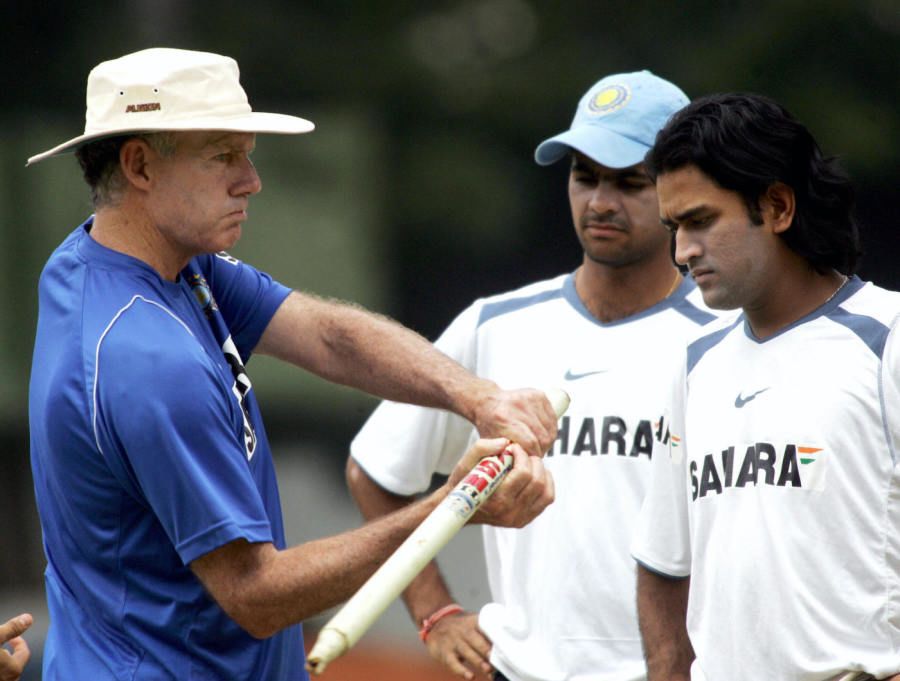Andrew Hill in The FT
Before her first ward-round as a medical student, Sunita Sah watched as the consultant leading the group stuffed his pockets with branded pens and notepads from a hospital cart piled with drug company freebies.
'People will forgive you for being wrong, but they will never forgive you for being right - especially if events prove you right while proving them wrong.' Thomas Sowell
Andrew Hill in The FT
Eric Li in The Economist
ALARM BELLS are ringing about the state of democracy. Freedom House proclaims the “global decline in democracy has accelerated” and that even in America it has “declined significantly”. Much of the weakening is happening in countries that are aligned with America, according to research by the V-Dem Institute in Sweden. Larry Diamond, a political sociologist, argues that the “democratic recession” has reached a “crisis”, intensified by the pandemic. There are many diagnoses. Francis Fukuyama, a political scientist, believes the American government is captured by elites and the public is divided by cultural identities. And then there are those who always reach for the easy answer, blaming China and Russia.
On the other side of the spectrum, democracy’s sceptics are enjoying a moment of Schadenfreude. Russia’s foreign minister, Sergei Lavrov, recently criticised the West’s failed attempts to “enforce democracy” on other countries whose cultures were ill fitted for such political systems and called on them to stop. Kishore Mahbubani, a Singaporean diplomat and scholar, believes America has in some ways “all the attributes of a failed state.” A decade ago even I weighed in, arguing that China’s model is superior to the West—a smug way of saying democracy is doomed.
Yet these pronouncements miss the mark because they share a flawed definition of democracy. To be more precise, they mistakenly equate liberalism with democracy, thereby rendering liberal democracy the only form of democratic governance. This is wrong.
In 1992, at the end of the cold war and beginning of a golden era for liberal democracy’s universalisation, Lord Bhikhu Parekh, a political theorist, wrote in an essay, “The Cultural Particularity of Liberal Democracy”, that “liberal democracy is liberalised democracy: that is, democracy defined and structured within the limits set by liberalism.” This combination, he noted, was crystallised around the 18th century in Europe and was widely championed in practice by the West only after the second world war as a way of opposing the Soviet Union. Democracy itself, in its earliest Western incarnation in ancient Greece, long preceded liberalism.
Moreover, in combination, liberalism was the dominant partner and democracy was subjugated. In fact, liberalism was hostile to democracy. The development of liberal institutions over the past two to three centuries has in many ways consisted of attempts at limiting the power of democracy. If we are to be historically accurate and intellectually honest, we need to recognise that liberal democracy is but one kind of democracy.
During the European Enlightenment, liberal thinkers such as Locke, Montesquieu and Mill proposed revolutionary ideas about how human societies should be governed based on the tenets of liberalism, such as the individual as the fundamental unit of society, the sanctity of private property and the primacy of procedural rule of law. Most modern liberal political institutions were developed with these ideas—representative government based on elections, separation of powers, freedom of the press, an independent judiciary and so on. They are fundamental to America’s constitution and to most other liberal societies.
But at the same time, many liberal forefathers also recognised that the goal of liberal institutions is to deliver happiness to the people. If that outcome is not met, procedures must be changed. According to Mill, even access to voting could be curtailed, say, if a citizen were illiterate.
Liberal democracy had enormous successes, notably in the second half of the 20th century. During that period, liberal democratic countries delivered unprecedented prosperity to their people—so much so that many countries, including China, sought to emulate many of the West’s practices, such as market economics. However when groups like Freedom House and V-Dem rank countries on their levels of democracy, it in essence measures countries on how closely they follow liberal institutional procedures. When people say democracy is receding in many countries, they really mean liberalism is in trouble.
Why is liberalism in bad shape? The reason is that in many places it seems to be failing its junior partner—democracy. Liberal democracy is in crisis mode because so many of these countries face severe problems: persistent inequality, political corruption, collapse of social cohesion, lack of trust in government and elite institutions, and incompetent government. In short, liberalism has been failing to deliver democratic outcomes.
In the Soviet Union there was a popular joke: “We pretend to work, they pretend to pay us.” In many liberal societies, people can turn that around: “We pretend to vote, they pretend to govern.” At this rate, the word “liberal” may soon no longer deserve to be followed by “democracy”.
The world needs a better and more inclusive way of evaluating democracy. Defining and measuring democracy by liberal procedures is way too narrow—historically, conceptually and under contemporary conditions. In ancient Greece, when democracy was first practised in the West, democratic politics was rather illiberal. There was no concept of individual or minority rights. That was why Plato and Aristotle—no democrats, both—criticised its majoritarian nature. Elections were not the only way of selecting leaders. Sortition—choosing leaders by lottery—was widely practised and fit Aristotle’s definition of democracy.
In the contemporary West, populist movements from the right and socialist activism on the left seem to be, at least in part, attempts to hold liberalism accountable for not delivering on outcomes. Looking at democracy anew is no easy task and will no doubt take a lot of work and debate. But I venture to propose a common-sense idea: let’s measure democracy not by procedures but by outcomes.
Democracy’s normative goal must be to deliver satisfaction to a vast majority of people over a long period. What good are elections if they keep producing poor leaders with the public stuck in perpetual cycles of “elect and regret”? What good is an independent judiciary if it only protects the rich? What good is separation of powers if it is captured by special interests to block necessary reforms? What good is freedom of the press, or freedom of speech for that matter, if it corrodes societies with division and dysfunction? What good are individual rights if they result in millions of avoidable deaths, as has happened in many liberal democracies during the pandemic?
In its attempt to challenge a rising China, America’s president, Joe Biden, frames this competition as a starkly ideological dichotomy of democracy versus autocracy. With that in mind, the administration is hosting a gathering of democracies on December 9th and 10th, to which some 110 countries or regions invited. A review shows that these 111 places (with the US included) consist of around 56% of the world’s population but had cumulative covid-19 deaths of 4.2m, which is 82% of the world’s total. More glaringly, the three countries with the highest deaths are the host country (780,000), which boasts of being the oldest democracy, Brazil (615,000) and India (470,000), which relishes being the largest democracy.
As for the seeming target of the gathering, China, it has 1.4bn people and just 5,697 deaths from covid-19.
Some may object that this was because China restricted freedoms more than “democracies”. But what kind of democracy would sacrifice millions of lives for some individuals’ freedom not to wear masks? It is precisely in this way that liberal democracy is failing its citizens.
Perhaps it is possible to develop a set of measurements that show which countries are generating more democratic outcomes. How satisfied are most people with their countries’ leadership and directions? How cohesive is society? Are people living better than before? Are people optimistic about their future? Is society as a whole investing enough to ensure the well-being of future generations? Beyond the narrow and procedural-centric liberal definition of democracy, outcomes must be taken into consideration when we define and evaluate democracies.
I would suggest that when it comes to outcomes, China doesn’t score so badly. The country has its problems—inequality, corruption and environmental degradation to name a few. But the government has been tackling them aggressively.
This is probably why a vast majority of Chinese people tell pollsters that they are generally satisfied with how the country is being governed. Can we at least now entertain the idea that China is generating more productive and democratic outcomes for its people and, measured by these concrete results, its political system is more democratic than that of the United States, albeit different, at the moment?
Abraham Lincoln characterised democracy in the most eloquent layman’s term: government of the people, by the people, for the people. I dare say that the current Chinese government outperforms America on all three. Chinese people overwhelmingly believe their government belongs to them and they live in a democracy; and it is a fact that a vast majority of China’s political leaders come from ordinary backgrounds. Quite to the contrary, many Americans seem to believe that their government is captured by monied interests and formed by an elite oligarchy. As for the last part, “for the people”, China is way ahead on outcomes.
The world needs greater diversity in the concept of democracy that is both historically truer (because democracy was not always liberal) and practically more beneficial. Many developing countries have seen their economic growth stagnate. They need to be unshackled from the ideological rigidity of the liberal doctrine and to experiment with their own ways of realising their democratic potential. New perspectives and measurements might help liberal societies as well.
For too long, liberalism has monopolised the concept of democracy and liberals have taken their democratic credentials for granted. This may be one cause for why many liberal governments are failing to deliver democratic outcomes for their people. Being measured not on procedures but on actual performance may be just the spur for liberal countries to implement much-needed reforms. If liberal governments could again deliver more democratic outcomes, so much the better for the world.
This perspective, on the need to judge democracy by its outcomes, is rarely discussed in global debates over governance. Liberal societies champion diversity in just about everything except for diversity in models of democracy, even at a conceptual level. But the reality is that the history of democratic aspirations and practices has been immensely rich and diverse. Besides Athenian democracy being decidedly not liberal, there were centuries of democratic ideals and institutional practices in China’s Confucian tradition—also not liberal. At this point in time, the world is certainly in need of more democratic experiments.
I am not attempting to advocate any particular form of democracy, and certainly am not making a case for majoritarian or direct democracy—which China is definitely not. Rather, I am proposing to broaden and pluralise both the definition and measurements of democracy. China’s current socialist democracy is surely a model worthy of study given the country’s obvious successes.
The American foreign-policy thinker Anne-Marie Slaughter recently argued that the United States should “accept at least the possibility that other forms of government could be better.” She further suggested, as a new measure of governance, that people evaluate which countries are doing a good job at achieving the United Nations’ Sustainable Development Goals.
It is a great idea. And the broader point needs to be amplified: end liberalism’s monopoly on democracy—and let more forms of democracy flourish.

 The author with MS Dhoni in 2006, whom he describes as "one of the sharpest cricket minds I have encountered" Dibyangshu Sarkar / AFP/Getty Images
The author with MS Dhoni in 2006, whom he describes as "one of the sharpest cricket minds I have encountered" Dibyangshu Sarkar / AFP/Getty Images